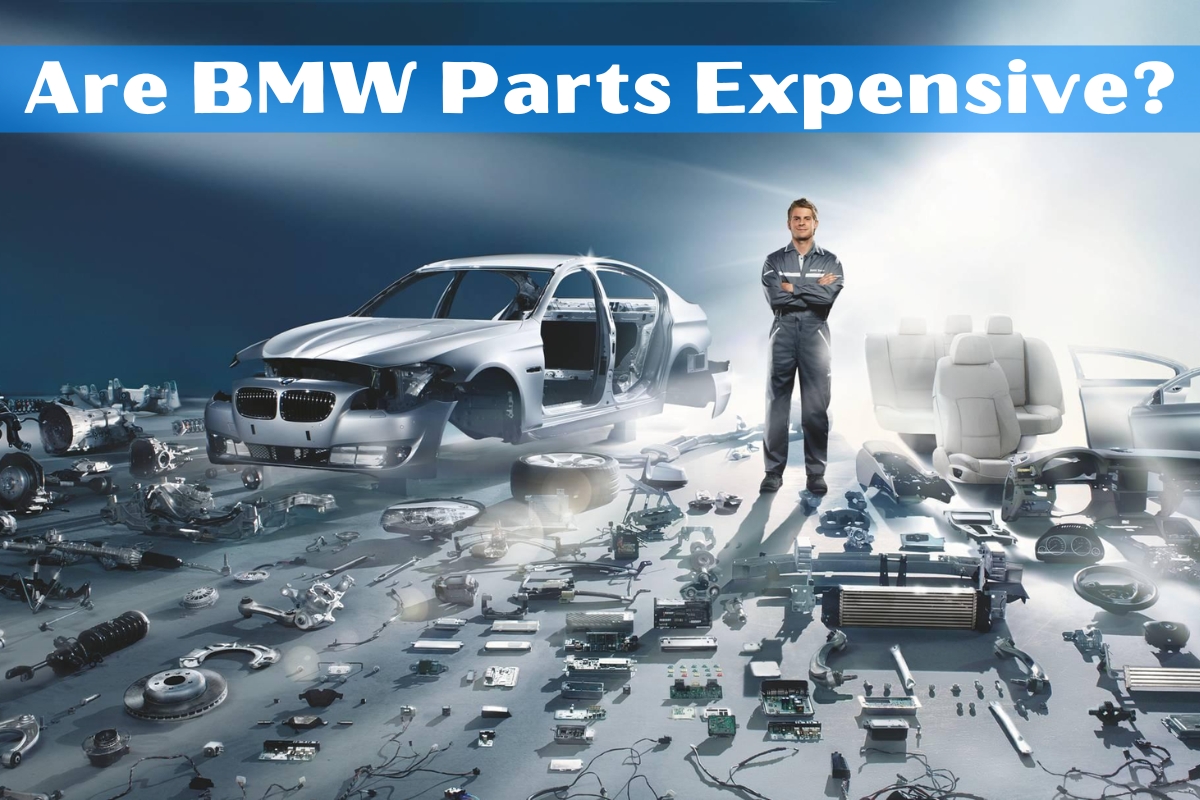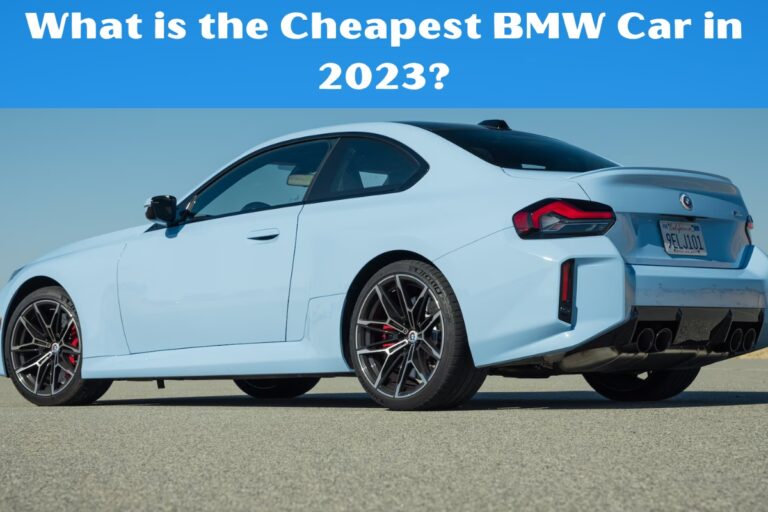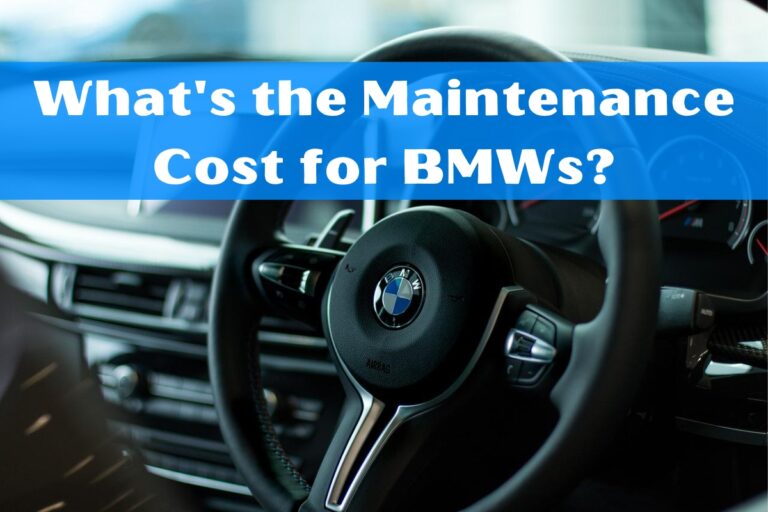Are BMW Parts Expensive? Understanding the True Costs of Maintenance

In a nutshell: BMW parts tend to be more expensive than average, but this premium pricing often reflects the brand’s engineering quality, advanced technology, and stringent manufacturing standards. Maintaining a BMW can be costlier than mainstream vehicles, but many owners feel the investment is worthwhile for the driving experience and long-term reliability when using genuine parts.
If you’re a BMW owner or considering purchasing one, you’ve likely wondered: “Are BMW parts expensive?” This is a common concern, as BMWs are renowned for their luxury and performance – qualities that often translate to higher ownership costs. In this comprehensive guide, we’ll explore the factors influencing BMW parts prices, compare them to other premium brands, and provide cost-saving tips to help you make informed decisions.
By the end, you’ll have a better understanding of why BMW parts come at a premium and whether the investment is justified based on your needs and priorities. We’ll cover the following:
- Reasons behind BMW’s higher parts prices
- Average costs for common replacement parts
- How BMW compares to other luxury automakers
- Benefits of using genuine BMW components
- Money-saving strategies for BMW maintenance
So, let’s dive in and uncover the truth about BMW parts and maintenance costs.
Factors Influencing BMW Parts Prices
Several key elements contribute to the typically higher pricing of BMW parts compared to mainstream vehicles. Understanding these factors can provide valuable context for the associated costs.
Brand Reputation and Prestige
BMW is a globally renowned luxury automotive brand, synonymous with meticulous engineering, performance, and prestige. This reputation commands a premium, as consumers are willing to pay more for the assurance of BMW’s quality standards and driving experience.
Advanced Technology and Innovation
BMWs are packed with cutting-edge technology, from sophisticated engine management systems to advanced safety features and electronics. Developing and manufacturing these innovative components requires significant research and development investments, which are reflected in the parts’ pricing.
Rarity and Exclusivity of Certain Models
Some BMW models are produced in limited quantities or feature exclusive components, further driving up the costs due to scarcity and increased demand. Rarer parts may need to be sourced from specialized suppliers, adding to the overall expense.
Premium Quality Materials and Stringent Standards
BMW prides itself on using premium materials and adhering to rigorous quality control processes in parts production. From high-grade metals to intricate tolerances, these standards ensure optimal performance and longevity but also contribute to higher manufacturing costs.
Common Replacement Parts and Their Costs
To better understand the expenses associated with BMW maintenance, let’s examine some common replacement parts and their average costs based on industry data.
Engine Components
- Timing chain: $500 – $1,200
- Spark plugs: $200 – $400
- Water pump: $300 – $700
Electronics and Sensors
- Control modules (ECU, BCM, etc.): $500 – $1,500
- Sensors (camshaft, crankshaft, etc.): $100 – $400
Brakes and Suspension Parts
- Brake pads: $150 – $400
- Brake rotors: $250 – $600
- Shocks/struts: $300 – $800
Routine Maintenance Items
- Engine oil change: $100 – $200
- Air filters: $50 – $150
- Brake fluid flush: $100 – $300
While these ranges provide a general idea, costs can vary significantly based on factors like the specific BMW model, age, mileage, and your location.
Comparing BMW Parts Prices to Other Luxury Brands
To put BMW’s parts pricing into perspective, let’s compare it to other premium automotive brands known for their engineering and performance.
BMW vs. Mercedes-Benz
Both German automakers are renowned for their luxury vehicles and advanced engineering. However, Mercedes-Benz parts tend to be slightly more expensive than their BMW counterparts on average, particularly for high-end models like the S-Class.
BMW vs. Audi
Audi and BMW are close competitors in the luxury segment, with Audi parts generally being comparable in cost to BMW’s offerings. Some Audi models may have slightly lower average parts prices, but the difference is typically marginal.
BMW vs. Lexus
As Toyota’s luxury division, Lexus parts are often more affordable than BMW’s, although still costlier than mainstream brands. Lexus vehicles are known for their reliability, which can translate to lower overall maintenance costs in the long run.
While these comparisons provide a general idea, it’s essential to remember that parts pricing can vary significantly based on the specific model, year, and replacement component.
Why Genuine BMW Parts are Worth the Investment
Despite the higher upfront costs, many BMW enthusiasts argue that using genuine parts from the manufacturer is a worthwhile investment. Here are some compelling reasons why:
Seamless Fit and Optimal Performance
BMW parts are designed and engineered specifically for each vehicle model, ensuring a perfect fit and seamless integration with other components. This translates to optimal performance, handling, and overall driving experience.
Warranty Coverage and Peace of Mind
Genuine BMW parts often come with warranty coverage, providing added protection and peace of mind in case of any manufacturing defects or premature failures.
Maintaining Resale Value
Using genuine BMW parts can help preserve your vehicle’s resale value, as prospective buyers tend to favor well-maintained BMWs with a documented history of genuine parts replacements.
Safety and Reliability Standards
BMW holds its parts to stringent safety and reliability standards, undergoing rigorous testing to ensure they meet the brand’s exacting specifications. This attention to detail can contribute to enhanced safety and longevity for your vehicle.
Cost-Saving Tips for BMW Owners
While BMW maintenance can be more expensive than average, there are several strategies savvy owners can employ to help manage costs:
Finding Reputable Independent Mechanics
BMW dealerships tend to charge premium labor rates, so seeking out reputable independent mechanics specializing in BMW repairs can often result in significant cost savings. Research and read reviews to find trusted professionals in your area.
Using Approved Aftermarket Parts for Non-Critical Components
While genuine BMW parts are recommended for critical components like engines and transmissions, you may be able to use approved aftermarket parts for non-critical replacements like brake pads, filters, or exterior trim pieces without compromising performance or voiding warranties.
Staying Current on Maintenance
Adhering to BMW’s recommended maintenance schedules can prevent minor issues from escalating into major, costlier repairs down the line. Regular servicing, fluid changes, and inspections can go a long way in extending your vehicle’s lifespan.
Considering Extended Warranties or Vehicle Service Contracts
Investing in an extended warranty or vehicle service contract can provide added protection against expensive repairs, especially as your BMW ages beyond the factory warranty period. Shop around and compare coverage options to find the best value.
By implementing these cost-saving strategies, BMW owners can enjoy the luxury and performance of their vehicles while managing maintenance expenses more effectively.
The Bottom Line: Balancing Costs and Quality
In conclusion, BMW parts do tend to be more expensive than mainstream vehicle components, but this premium pricing often reflects the brand’s commitment to engineering excellence, advanced technology, and stringent quality standards.
While initial maintenance costs may be higher, many BMW enthusiasts argue that the investment is worthwhile for the unparalleled driving experience, long-term reliability, and peace of mind that comes with using genuine parts designed specifically for their vehicles.
Ultimately, the decision comes down to balancing your budget and priorities. If you value the performance, prestige, and quality associated with the BMW brand, the higher parts costs may be a fair trade-off. However, if your primary concern is minimizing maintenance expenses, exploring more cost-effective alternatives might be the better choice.
By understanding the factors influencing BMW parts pricing, being proactive about maintenance, and implementing cost-saving strategies, you can make an informed decision that aligns with your needs and budget as a BMW owner.
Don’t Let Maintenance Costs Deter Your BMW Ownership Experience
While the potential for higher maintenance costs is a legitimate consideration when owning a BMW, it shouldn’t overshadow the incredible driving experience and sense of pride that comes with this prestigious brand. Many BMW enthusiasts eagerly embrace the associated expenses as a worthwhile investment for the unparalleled performance, cutting-edge technology, and luxurious amenities these vehicles offer.
Remember, a well-maintained BMW can provide years of driving pleasure and retain its value remarkably well, especially when using genuine parts and adhering to the recommended service schedules. By being proactive about maintenance and implementing cost-saving strategies, you can enjoy the ultimate driving machine without breaking the bank.
At the end of the day, the decision to own a BMW should be driven by your passion for the brand, your appreciation for its engineering excellence, and your willingness to invest in preserving that level of quality. With proper care and attention, your BMW can continue to deliver the exhilarating performance and prestige that make it a true icon on the road.
Conclusion
In this comprehensive guide, we’ve explored the multitude of factors contributing to the higher costs associated with BMW parts and maintenance. From the brand’s prestigious reputation and advanced engineering to the use of premium materials and stringent quality standards, these elements collectively result in a premium ownership experience that comes with a corresponding price tag.
However, as we’ve discussed, there are numerous strategies BMW owners can employ to manage these expenses effectively. By seeking out reputable independent mechanics, considering approved aftermarket parts for non-critical components, adhering to recommended maintenance schedules, and exploring extended warranty options, you can strike a balance between preserving your BMW’s performance and longevity while keeping costs in check.
Ultimately, the decision to embrace the higher maintenance costs of a BMW boils down to your personal priorities and appreciation for the brand’s engineering excellence, driving dynamics, and luxurious amenities. For many enthusiasts, the investment is well worth it to experience the ultimate driving machine in all its glory.
So, whether you’re a current BMW owner or considering joining the ranks, approach the maintenance costs with an informed mindset, implement cost-saving strategies where appropriate, and above all, savor the unparalleled driving experience that has made BMW a global automotive icon.






